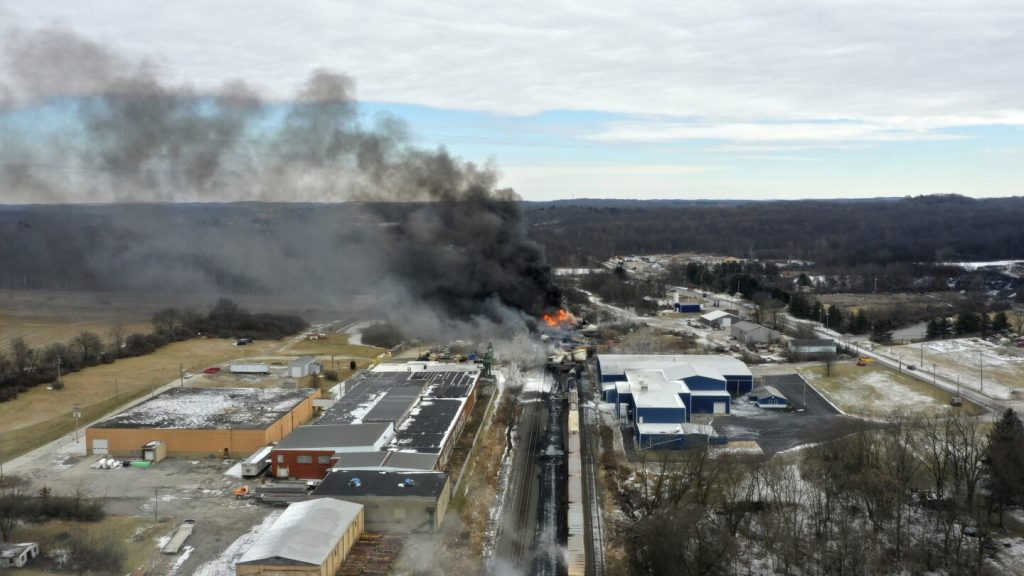Residents affected by the East Palestine derailment last year may still be able to receive personal injury payments despite the majority of their $600 million class action settlement with Norfolk Southern railroad being on hold during an appeal. The settlement allows for personal injury payments to move forward while the appeal challenging the adequacy and fairness of the settlement progresses. It is unclear how much of the settlement fund will be used for these payments, as details have not been provided by the attorneys representing the residents. A federal judge approved the settlement last month, but specifics regarding individual payments have not been disclosed, with only a small number of households and businesses choosing to opt out of the deal.
Residents within a 10-mile radius of the train crash were eligible to receive up to $25,000 each if they forfeited their right to sue for future health conditions. The settlement also includes larger payments of up to $70,000 per household for those living within two miles of the derailment, decreasing as the distance from the crash site increases up to 20 miles. The total of $162 million in legal fees has been approved by the judge and will not change unless the settlement is overturned on appeal. Residents are still awaiting information on the amount they will receive, which will be reduced based on the aid they received from Norfolk Southern to relocate families and compensate for lost wages and damaged belongings.
Administrative expenses have already consumed at least $18 million of the settlement fund, with an additional $825,000 likely to be added due to handling personal injury payments separately from property damage payments. The appeal process has been somewhat divisive in East Palestine, with initial objections leading to threats from some residents. While one of the original appellants publicly stated he did not want to be part of the appeal, four other residents have come forward indicating their intent to challenge the settlement. The plaintiffs’ lawyers are requesting a bond from appellants before proceeding with the appeal, highlighting concerns over lack of information about the contamination residents were exposed to and the adequacy of the personal injury payment.
Some residents who object to the settlement feel that they were forced to accept it without a full understanding of the contamination they were exposed to during the derailment. Doubts have been raised about the Environmental Protection Agency’s assurances of safety, and concerns remain about undisclosed testing data. Despite these uncertainties, the plaintiffs’ lawyers assert that residents should trust the research and consultations that went into the settlement. Concerns have also been raised about the inadequacy of the personal injury payment, with residents potentially facing substantial medical bills if serious health issues arise. While the railroad has agreed to pay for medical exams for 20 years as part of a separate federal settlement, no provision has been made for treatment of any illnesses that may develop.
Overall, the appeal process for the East Palestine derailment settlement remains ongoing, with residents expressing varying levels of support and skepticism. The controversy surrounding the settlement highlights the complexities of handling large-scale disasters and determining appropriate compensation for those affected. As the legal proceedings continue, residents continue to seek clarity on the extent of their damages, the safety of their environment, and the fairness of the settlement agreement. It remains to be seen how the appeal process will unfold and what the final outcome will be for the individuals and businesses impacted by the train crash near the Ohio-Pennsylvania border in February 2023.


